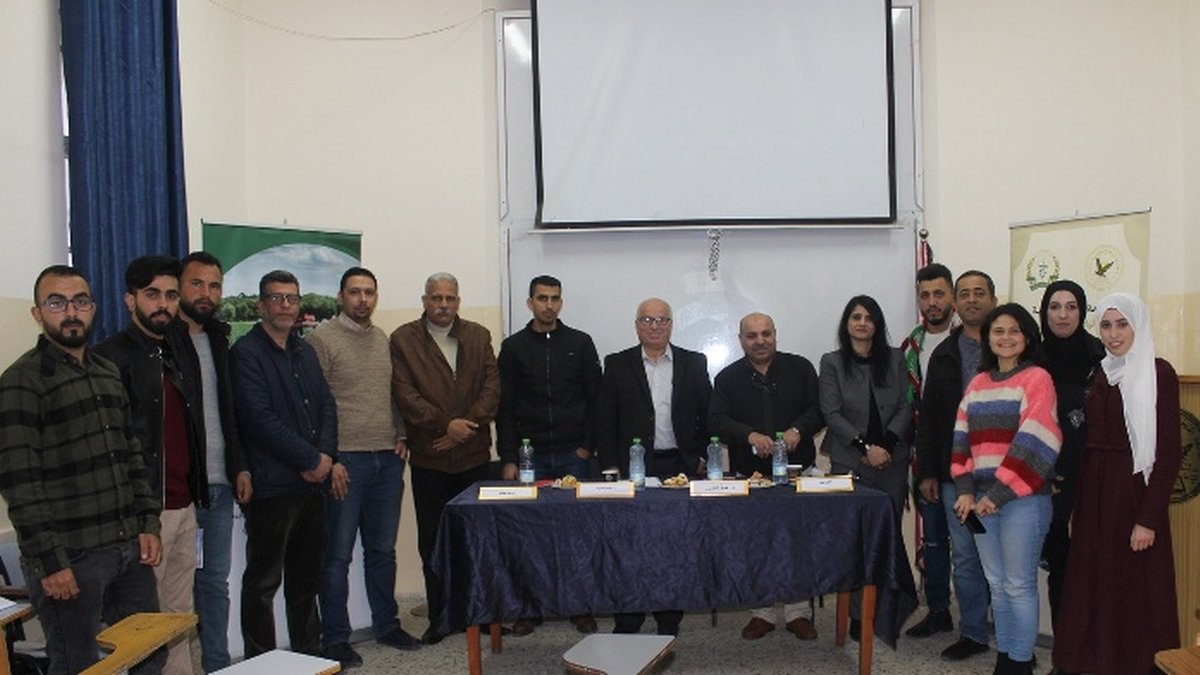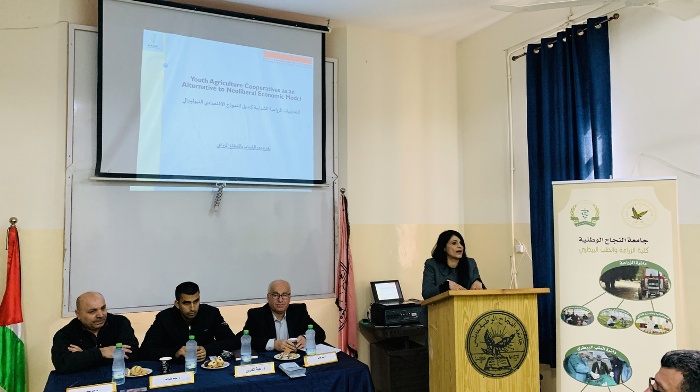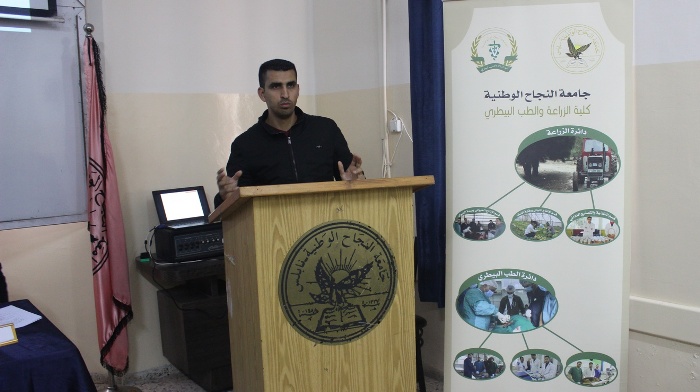
The faculty of Agriculture and Veterinary Medicine in cooperation with the Union of Agricultural Work Committees conducted a workshop about enhancing the role of youth within the agricultural sector through strengthening the role of youth cooperatives. This project is funded by Rosa Luxemburg.

Dr. Hiba Al-Fares; Dean of the Faculty of Agriculture and Veterinary Medicine, opened the discussion highlighting the importance of increasing awareness of youth to become more involved in the agricultural sector. Al-Fares valued the community partnership between An-Najah University and the Union of Agricultural Work Committees that aims to encourage and direct high school students to study vocational and agricultural specializations.
Then, Dr. Mu’aed Bsharat; the Director of Programs in the Union of Agricultural Work Committees introduced the union and presented its activities. He talked about the project of “community solutions- youth agricultural cooperatives as an alternative for the neoliberal economic model”, which empowers Palestinian youth in rural areas. This project encourages youth, both males and females, to establish cooperative societies that would contribute in responding to the food needs in Palestine. These cooperatives would employ other youth in the agricultural sector, which will turn this sector into a productive one.

In addition, Omar Tabakhna from the Union of Agricultural Work Committees talked about the challenges that face the agricultural sector, including the Israeli occupation, scarcity of water, urbanization, poor funding, poor financing services for farmers, and the high risks facing the agricultural sector.
Omar Awad, the Director of Cooperative Societies, talked about the differences between neoliberalism and socialism, and explained the mechanisms of forming cooperative societies and their benefits in creating job opportunities and integrating marginalized groups of the community. Awad urged youth to establish cooperatives as they would respond to the existing agricultural problems in Palestine, and would also overcome the problems that results from the local neoliberal policies, which discourages youth activism in general and within the agricultural sector in specific.
The workshop was concluded by nominating a group of students to establish a cooperative society, supported by the Union of Agricultural Work Committees and the Agricultural Relief. This cooperative would be supervised from different specializations within the faculty (plant production, animal production and health, food production, and veterinary medicine). The launching of this cooperative society would encourage students and graduates to run their own projects and cooperatives.
عدد القراءات: 69





